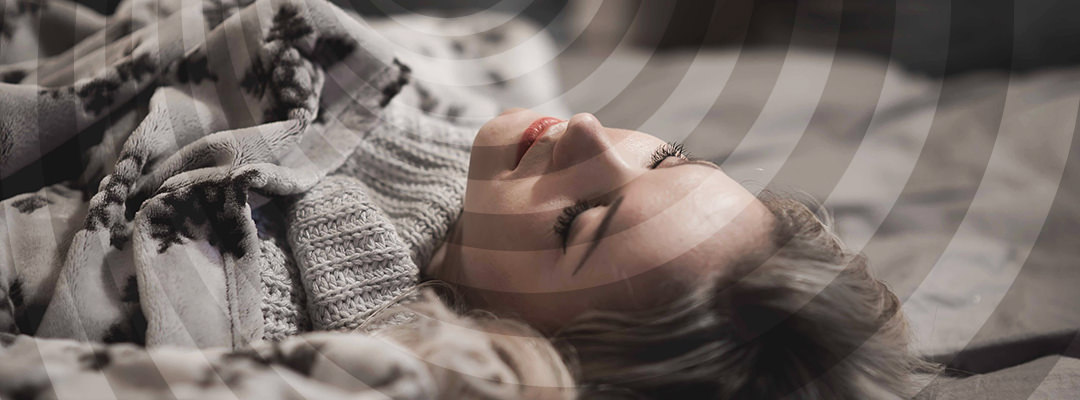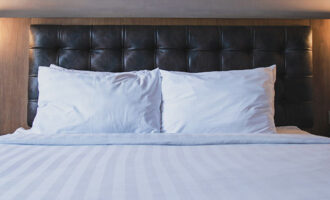What are hypnic jerks, exactly? You may have heard this term being used to describe sudden motions that wake you up as you’re starting to fall asleep. They’re really a type of myoclonus, or involuntary muscle movement (hiccups are another one). These usually happen just as you’re teetering on the edge of sleep.
Most people will experience hypnic jerks — short for hypnogogic, and also called sleep starts — at some point in their life. Researchers think they impact up to 70 percent of adults. They can be a convulsion of a single body part or one side of your body, lasting a few moments before your body relaxes again. The hypnic jerk can be accompanied by feelings of falling, sweating, rapid breathing, or rapid heart rate.
Hypnic jerks can be a little scary, but they’re usually not dangerous. They might be a sign that you’re not engaged in the best sleep habits, or it might just be one of the many ways your body is trying to protect you. Let’s look at some of the things that can cause hypnic jerks as you’re trying to get a little well-earned rest and some of the things you can do to make them back off.
5 Causes of Hypnic Jerks At Nighttime
Your Body Is Overstimulated
As you can probably guess, stimulating substances like caffeine, alcohol, and nicotine are never conducive to a good night’s sleep. These substances stay in your body for a solid while (up to six hours!) and make it difficult to fall asleep and stay that way. If you’re experiencing hypnic jerks, it may be that these stimulants are getting in the way of your body’s wind-down time.
You’re Overloaded On Stress
Likewise, dealing with a lot of stress and anxiety can make it difficult for your body to properly shut down. When your mind won’t stop circling around the problems you’re having at work, in school, or in your personal life, your body isn’t going to be able to settle into a fully relaxed state. This works on a basic chemical level too; when you have a lot of stress rattling around in your waking life, your cortisol levels remain elevated even when you’re resting. The body’s inability to let go of these daytime anxieties can trigger hypnic jerks as you’re falling asleep.
You’re Psyched Up On Physical Activity
Even though exercise can be a super positive thing in our day-to-day lives, it does send signals to your brain that it’s time to rev up. When you exercise, your body understands that it might be put under pressure and it needs to be more alert, and this can make it difficult to get into a stable unconscious state at bedtime. To stave off hypnic jerks and get better sleep, try limiting your daily exercise to earlier in the day.
Your Sleep Environment Is Stressing You Out
Our surroundings play a huge part in our quality of sleep and the way we settle down to rest at night. If the air is too warm or too cold, your body may have trouble settling into the state needed for deep, healthy sleep. The same with bedding materials that are too clingy or irritate the skin. Blue light from our digital devices is also a major culprit — these lights trick our bodies into thinking that it’s daytime, and so we end up putting out instincts for sleep and our instincts for wakefulness and productivity against one another.
Your Poor Tired Body Is Just Trying To Keep You Safe
Contrary to the negative stimuli in our environments, some researchers think that hypnic jerks come from a subconscious misperception of what’s really happening around us. If our bodies begin to relax, our survival instincts might kick in to make sure we’re not falling off a cliff or letting our guard down somewhere dangerous. This causes us to wake so that we remain alert and safe.
5 Things You Can Do To Prevent Hypnic Jerks
Avoid Stimulants
We all need a coffee jolt sometimes, but to keep sleep-interrupting hypnic jerks at bay, try to limit your caffeine, alcohol, and nicotine intake to the earlier part of the day. These substances can stay in your body a long time and interfere with your ability to fall asleep even after you feel like the effects have worn off. In the evenings, lots of water and alternative drinks like bone broth and herbal tea will make for better sleep.
Create a Relaxing Nighttime Routine
Our bodies love rhythm and routine, and you might find your hypnic jerks ease up if you find ways to send your body signals that it’s time to get ready for bed. Try to go to bed around the same time each day, dim the lights, slow down your activities for the day. If you’re really having trouble, you can try playing the same song each night before you sleep to build an association with your shutting down time.
Avoid Blue Light
There are a thousand and one good reasons to turn off your phone, and getting a better night’s sleep is pretty high on the list. As we saw above, the blue light off our electronic devices can make it difficult for the brain to switch off from its daytime priorities. Try to switch off your phone, tablet, and computer a few hours before bedtime so your mind has time to fully detach.
Exercise Earlier In the Day
Physical activity is a huge stimulant for our brains, which is great in a lot of ways. Not so great for trying to settle into a quality night’s sleep. If your schedule allows, try to get in your exercise benefits in the morning or early afternoon so that your body has time to settle into a more relaxed state before bed.
Try a Breathing Meditation
If your body is still tense before bed and your mind is still tumbling around with your worries of the day, try some breathing exercise before you sleep to get yourself into a more relaxed state. Avoid meditation videos — as we saw, digital screens aren’t great for getting yourself ready to settle down. Instead, try a short countdown meditation that focuses on slowing down and deepening your breathing, releasing the tensions that you’ve pent up throughout the day.
Are Hypnic Jerks Dangerous?
Most of the time, hypnic jerks are at worst a minor annoyance for the person who’s sleeping beside you; the hypnic jerker often won’t even wake up all the way (though they will drift into a lighter level of sleep, which lowers the overall quality of their sleep as a whole). Very occasionally a hypnic jerk might be extreme enough that you end up banging your knee on your bedside table and injuring yourself, but these cases are pretty uncommon. However, you do want to make sure that your hypnic jerks aren’t interfering with your sleep too much in the long term, because this can lead to deeper health problems.
Occasionally, rapid involuntary movements in your sleep can be an indication of a bigger underlying problem. If you find that you’re experiencing these muscle spasms during the day, or if they constantly focus on just one place during the night, it’s never a bad idea to bring your concerns to a doctor to make sure it isn’t an indication of something more serious.
Hypnic jerks can be annoying and stressful, and even when they’re relatively benign they can take some of the value away from your most important You Time — that is, when you’re asleep. Often they can be addressed with a little lifestyle change that will go a long way towards giving a restful, peaceful night.
Did you like it?4.5/5 (28)





